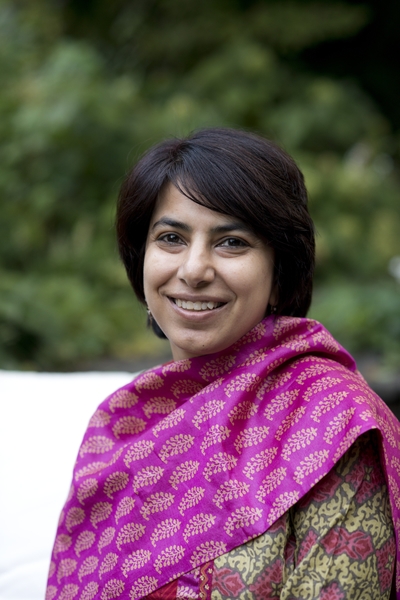The social sector in India has seen the rise of a multitude of individual fellowship programmes over the years. The four main types have been:
- Entry level: Expose youth to life and work in rural and urban India, thereby helping them understand social and development concerns and facilitating self-discovery. Examples include the Young India fellowship, Gandhi fellowship and William J. Clinton Fellowship.
- Capacity building: Identify emerging social leaders with innovative solutions to social problems and the potential to create long term change. The fellowships support them financially and/or help build their capacities and leadership skills. Examples include Pravah, Commutiny: Youth Collective’s Change looms leadership program and Acumen Fund fellowship.
- Higher education: Enable emerging social justice leaders to pursue advanced degrees at universities in India and overseas on topics linked to the social issues they work on. An example of this is the Ford Foundation International Fellowships Program (IFP).
- Leadership development: Enrol early and mid career professionals working on specific social issues. They support the leaders and help advance the issue. Examples include, MacArthur Foundation’s Fund for Leadership Development (FLD) program and Packard Foundation’s Leadership Development for Mobilizing Reproductive Health (LDM) program.
Donors have long wondered about the efficacy and impact of fellowship programmes; at times considering it a risky investment, seeing as there is limited knowledge of the returns generated for what is usually a high investment.
There is hence a need to understand the benefits and lessons learned from a cross section of fellowship programmes.
Benefits
Impact studies and evaluations of a few fellowship programmes (including India) have shown that investing in individuals has been beneficial and effective. [1]
1. Space to innovate and grow
Fellowship programmes facilitate personal and professional development. For individuals working on some of the most complex problems in society, this space to learn and grow and exposure to new ideas and techniques is critical.
Financial resources provided by these fellowships provide a sense of security and stability, and an opportunity to experiment without worrying about where the next paycheque will come from.
2. Personal growth and enhanced status
The results of an impact study on the International Fellowships Program (IFP) conducted in 2016, suggested that the maximum impact of the fellowship was generated at the individual level and for the fellow’s organization.
IFP acted as a catalyst for personal growth (it lead to an increase in confidence, knowledge and capacity) and provided participants with opportunities for professional development. The exposure, access to networks, and diversity, helped participants acquire new skills and fast-tracked their careers. It also gave a fillip to their social status and increased recognition from their families and social networks.
3. Contribution to issues and society
The study also demonstrated that fellows continue to be change agents even after the duration of the fellowship, are seen as thought leaders, stay connected to social justice, contribute to innovation, programmes and policies, and continue to give back to their organisations and society at large.
Evaluations have shown that fellowships on specific themes have helped to advance and shape those fields.

Photo Courtesy: Renuka Motihar
Lessons learned
1. The search process is critical
Before designing a programme, it is important to know the goal of the fellowship and ‘who’ will benefit from it. Having clarity on the selection criteria and process along with a selection committee that understands the fellowship’s vision, and staff that can manage and support fellows are keys to success.
2. Certain features are non-negotiables for selection
Selected fellows must already have commitment, a passion for bringing about social change, and giving back to their communities.
3. Financial support alone is not enough
Fellowship programmes cannot only provide financial support. They need to provide guidance, mentoring and capacity building as required. For example, if the focus is leadership development, the programme must help strengthen leadership skills and networks.
The programmes must also provide opportunities for personal and professional growth through exposure visits, workshops and customised training courses.
4. It is a high-risk programme
Investment in individuals is risky because the bet is on personality and potential. Donors should therefore be aware of and prepared for the risks of investing in individuals. A healthy risk appetite goes a long way in creating social change through building leadership and capacity of those who need it most.
5. Don’t make starting a new organisation a pre-requisite
In fellowships, new ideas that are being presented by fellows are provided seed money and often result in the launching of new organisations. However, there is no need to make starting a new organization a pre-requisite as it is so hard to sustain them, and get financial support.
Related article: Making fellowships work for all
Recommendations
Having implemented and evaluated fellowship programmes, I would highly recommend an approach of investing in individuals and not just programmes.
1. Invest at the right time depending on your goal
Being able to invest in people at the right time—either early on in their careers or in the mid-career stage is critical.
Fellowships help nurture individuals; for many at an early stage in their careers, it acts as a spring board putting them on the fast track. For middle career professionals, it can help solidify their thinking, further the work they are doing and facilitate new ideas.
2. Include a diverse set of individuals in each cohort
The individuals selected should not all be from the same background, field or personality type. There has to be cross pollination amongst cohorts and programme activities, so that peers can learn from each other as much as from the programme or the work itself. Networking between fellows also helps build a feeling of community, solidarity and allows for collaboration.
3. Ensure that there is a ‘re-entry’ strategy
In the case of higher education fellowships that involve people from marginalised backgrounds going to more liberal places to study, there is a need to have a re-entry plan and a support system in place post fellowship to manage expectations of the individuals and their organisations, community and society so as to mitigate “reverse cultural shock”.
4. Be flexible
Fellowship programmes should not be too rigid as that limits participation. There should be continuous evolving and learning, understanding what works and then adapting as necessary. As the sector evolves and the needs of organisations and communities change, there needs to be flexibility to change the contours of the fellowship programme if required.




